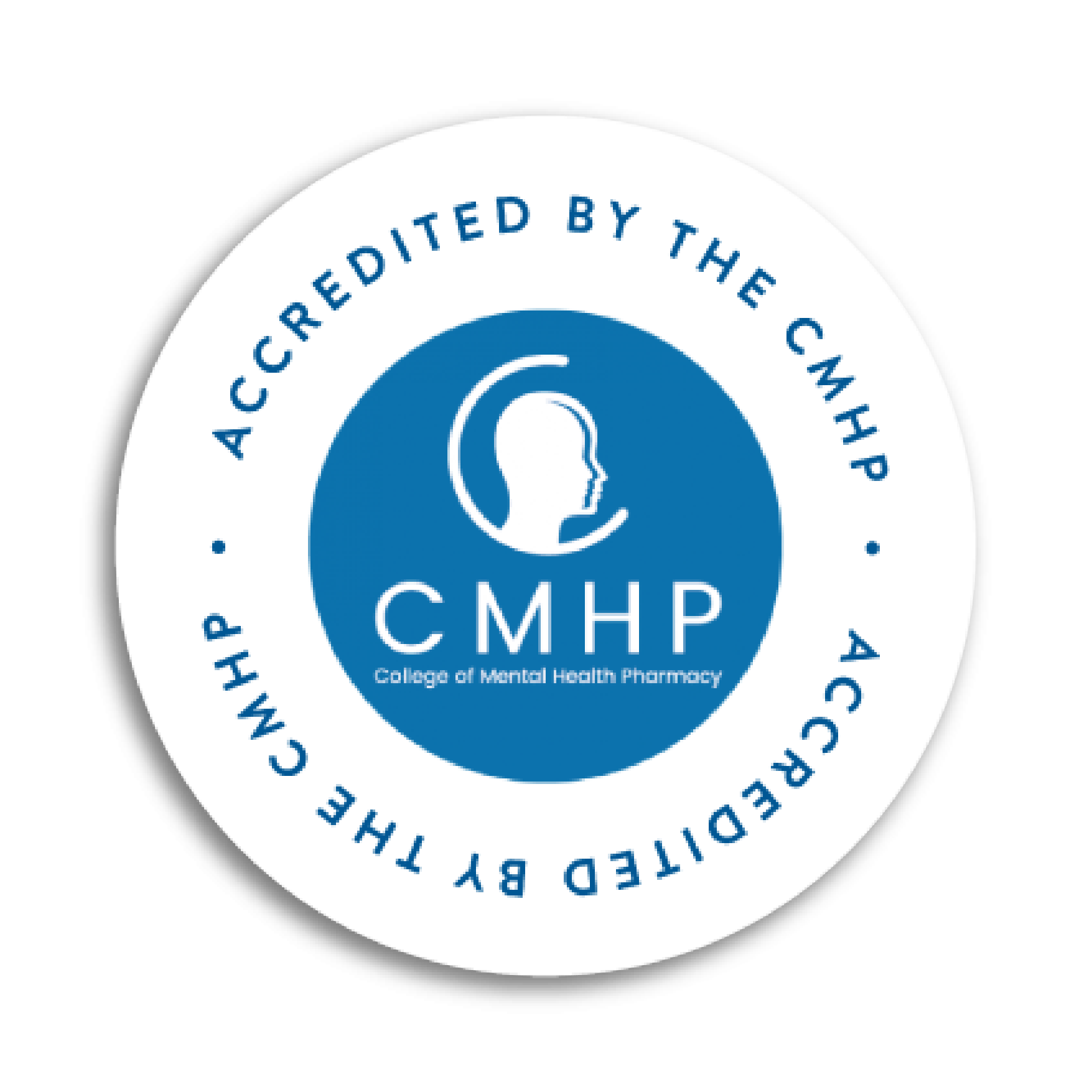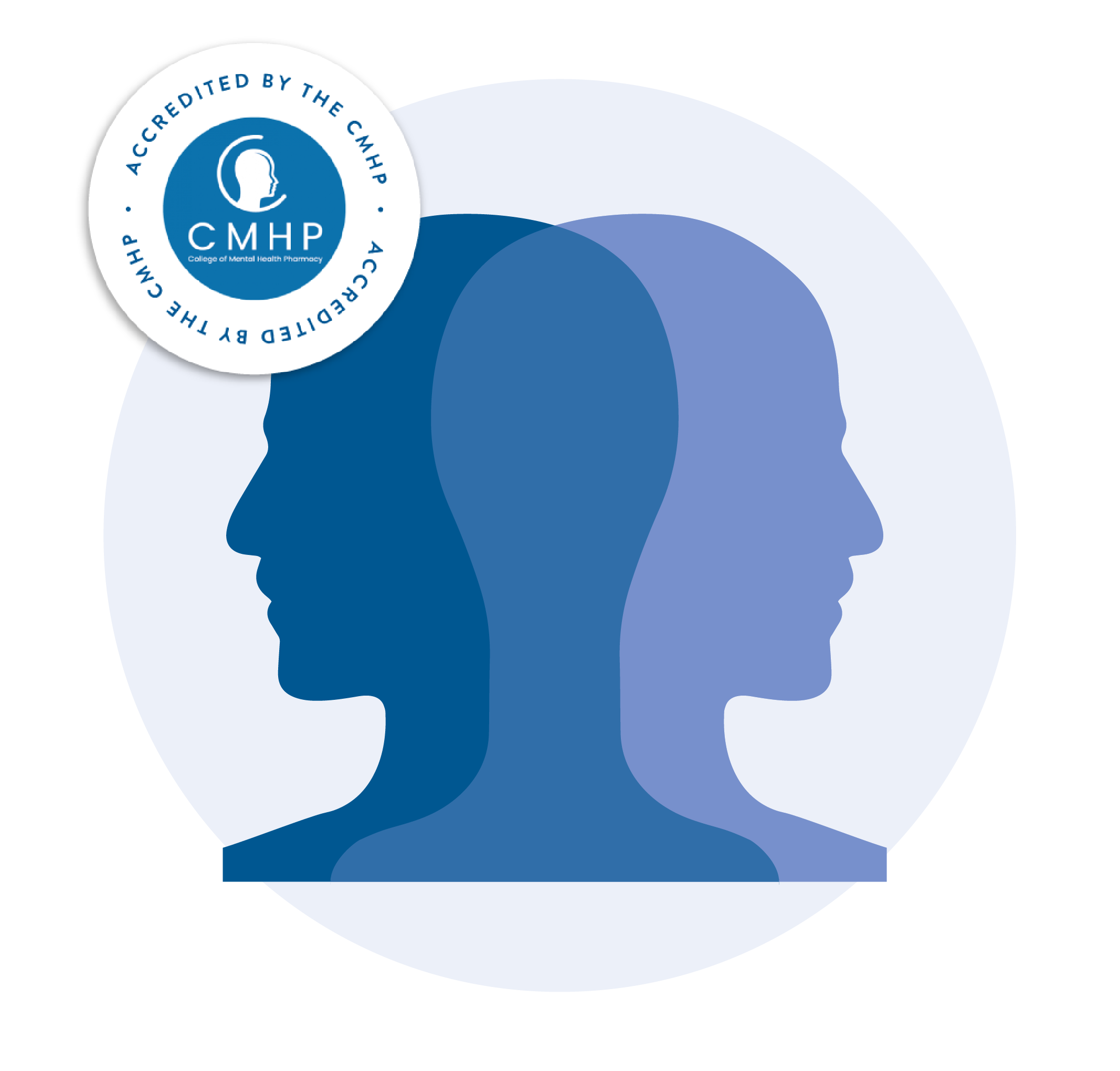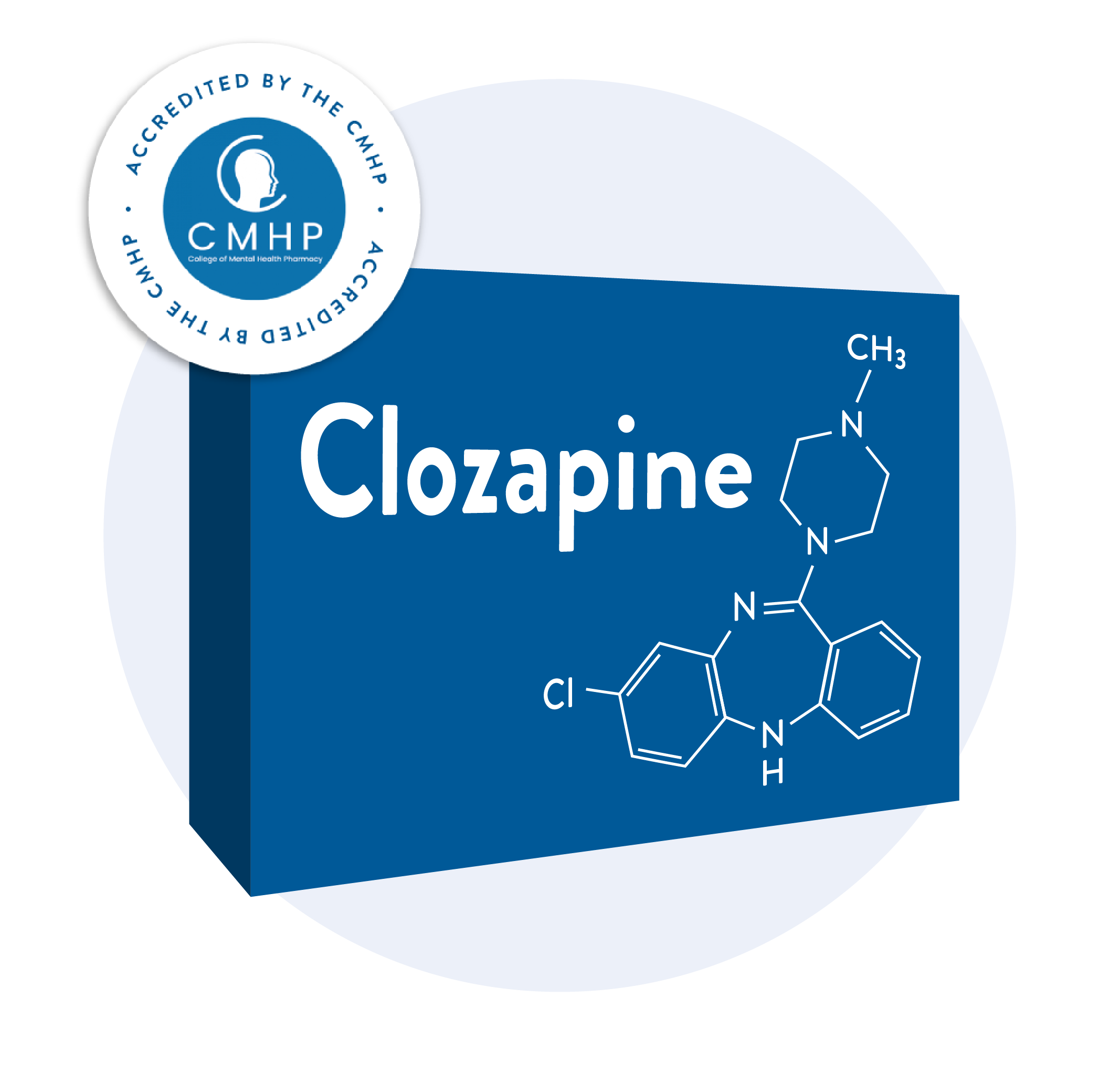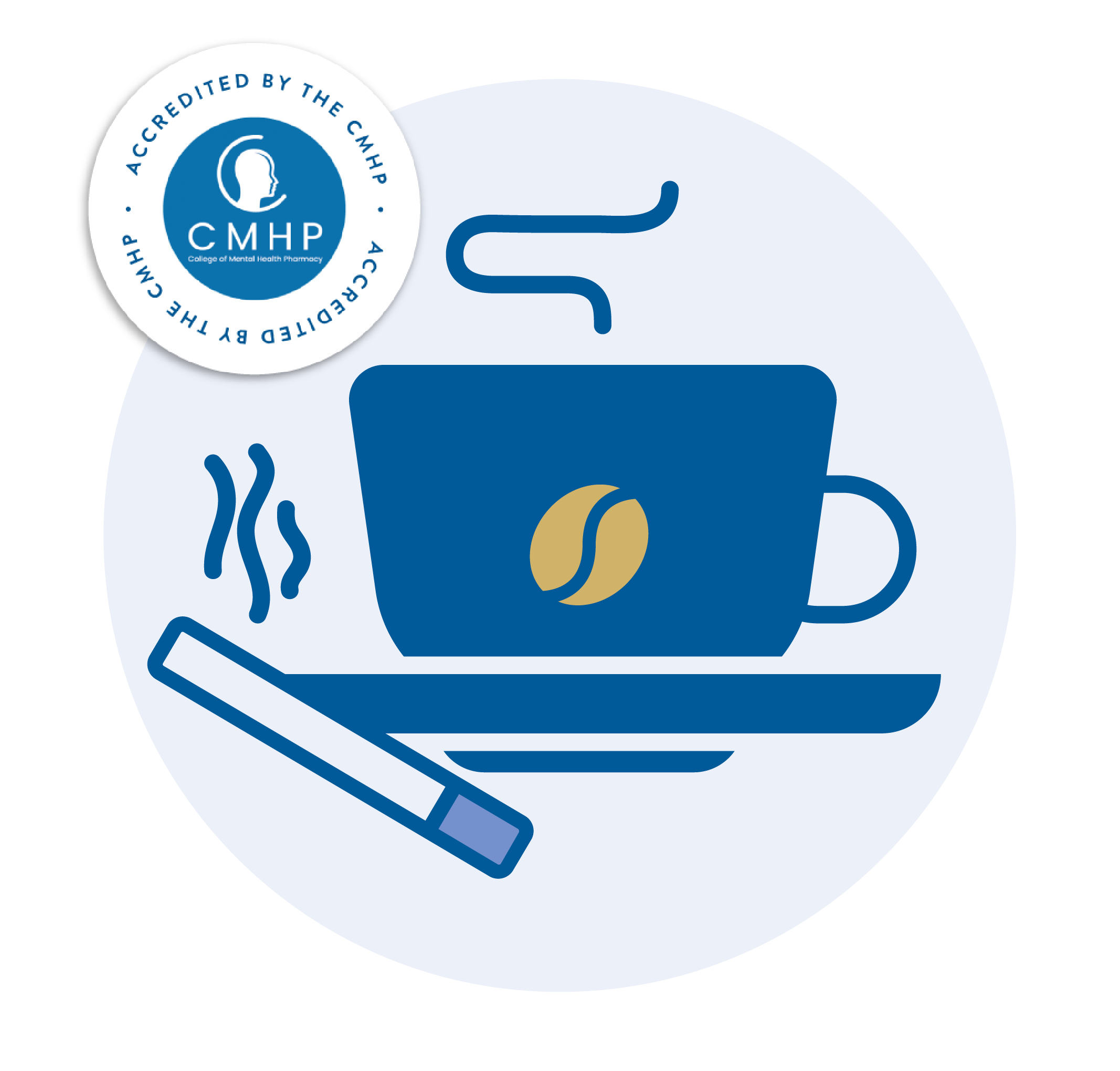This Programme Awards 10 Hours’ Accredited CPD By The College Of Mental Health Pharmacy (CMHP).
As this is a programme, each module is available to buy as a stand alone mini course. Below is a breakdown of each individual module.
Module 1: Background To Schizophrenia
During this module you will cover a number of lessons that will provide an overview of schizophrenia and the impact it can have on the individual and society at a number of different levels. This will also introduce you to treatment-resistant schizophrenia and thus set the scene for a more in-depth look at the management of treatment-resistant schizophrenia.
Module 2: Background To Clozapine
During this module you will cover a number of lessons that will help you to understand the difference between 1st generation and 2nd generation antipsychotics. You will also be introduced to clozapine, its history and how it is used today. Finally, you will learn about the importance of monitoring patients taking clozapine for agranulocytosis and neutropenia.
Module 3: Clozapine Safety & Blood Monitoring Requirements
This module will focus on the blood monitoring requirements for patients receiving clozapine within the UK. It covers the clozapine provisions in the UK, followed by a close look at the regulatory requirements around the management of blood tests for patients throughout their treatment with clozapine.
Module 4: Managing Patients On Clozapine
This module helps you understand the points to consider prior to initiating a patient on clozapine. You will also learn how clozapine is initiated and titrated to the optimum dose as well as understanding the implications of unplanned treatment breaks and how to manage them. Finally you will learn how clozapine therapy should be stopped if required for reasons other than agranulocytosis and neutropenia.
Module 5: Side Effects / Adverse Effects / Drug Errors
This module will provide an introduction to the management of side effects for patients taking clozapine. It will begin with an overview of licensed medications and why this is important when considering side effects. It will then provide key definitions such as the definition of side effects, adverse effects and drug errors plus the importance of and methods for reporting them. Finally, it will give a brief overview of common side effects, why and when to carry out plasma serum testing and the management of overdoses.
Module 6: Gastrointestinal Side Effects Of Clozapine
In this module we will take a particular look at gastrointestinal side effects which represent some of the most common and serious side effects of clozapine. Hypersalivation can not only be distressing for many, but can result in life-threatening conditions, such as aspiration pneumonia. In addition, you will learn that constipation is a key component in clozapine-induced gastrointestinal hypomotility (CIGH) which, if left untreated, can have serious implications for patients.
Finally, you will explore the risk factors for these adverse drug reactions as well as the recommended pharmacological and non-pharmacological treatment options.
Module 7: Cardiometabolic Side Effects Of Clozapine
Clozapine treatment can offer significant benefits to patients suffering from treatment-resistant schizophrenia. However, clozapine treatment also carries a number of risks- some of which are potentially life-threatening. We have already looked at potential gastrointestinal side effects.
In this module we will look closely at some of the cardiometabolic side effects, the management of which are important in ensuring the patient’s physical health is managed as well as the mental health. These side effects include myocarditis, tachycardia and eosinophilia and you will understand how to identify the risks and symptoms as well as how to manage these conditions.
Module 8: Lifestyle Considerations Plus Special Populations
We have already established that clozapine is a very important medication for a particular subset of patients living with schizophrenia. It is a complex drug which acts on many different mechanisms within the brain.
For the most part, the adverse event profile of clozapine is predictable from its pharmacological properties. An important exceptions is its propensity to cause agranulocytosis. Because of the risk, its use is restricted to treatment-resistant schizophrenia (TRS) and psychosis occurring during the course of Parkinson’s disease in cases where standard treatment has failed.
Whilst blood monitoring is an essential part of the care of patients receiving clozapine, we have already looked at some of the most potentially serious adverse reactions. In this module we will look at other lifestyle considerations which may also impact on the patients’ physical and mental health.
Module 9: Clozapine Service Provision
During this module, you will cover a number of lessons that will help you to understand the main service delivery models that are adopted throughout the UK. You will also learn how clozapine is procured through the NHS and the expectations that are placed upon each supplier in terms of fulfilling each contract. Finally you will learn more about the available formulations and better understand the logistical challenges that face treatment providers.
PLEASE NOTE: This module covers some approaches to clozapine treatment which are unlicensed (off-label) and may be viewed as controversial. It is not our intention to direct you or to advocate one brand, formulation or approach over another but merely to provide an opportunity to consider all aspects of clozapine treatment.












